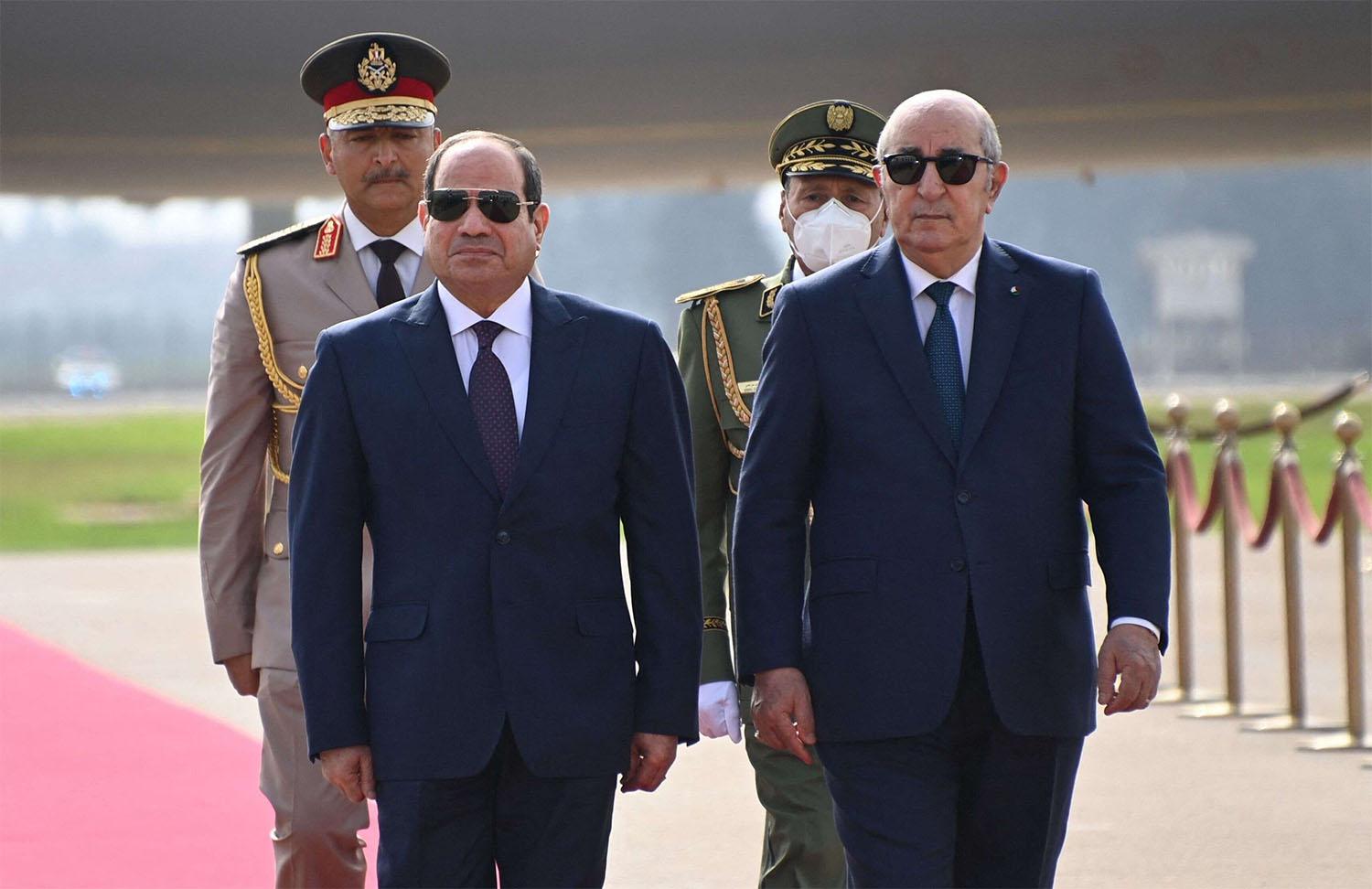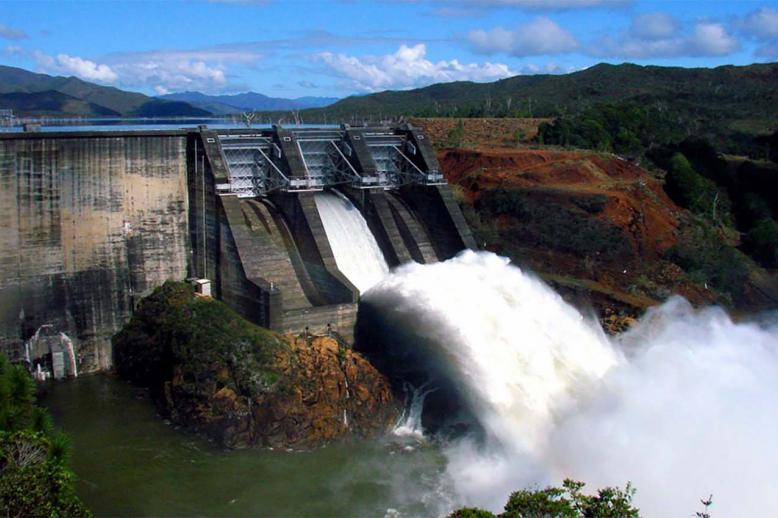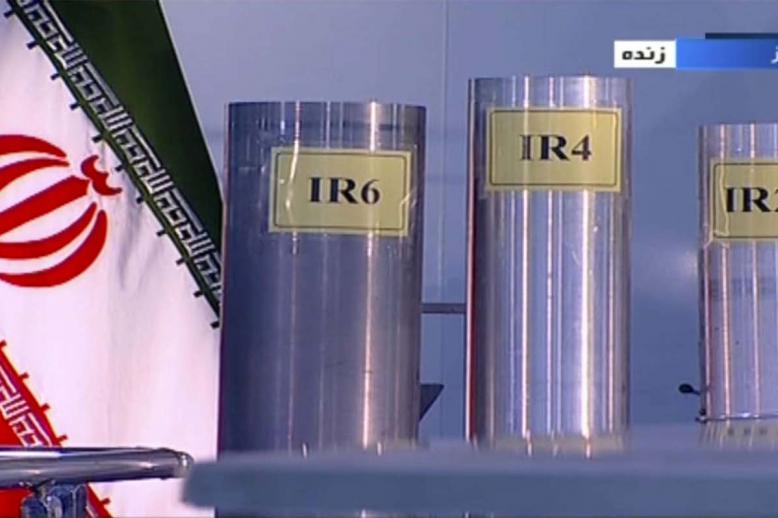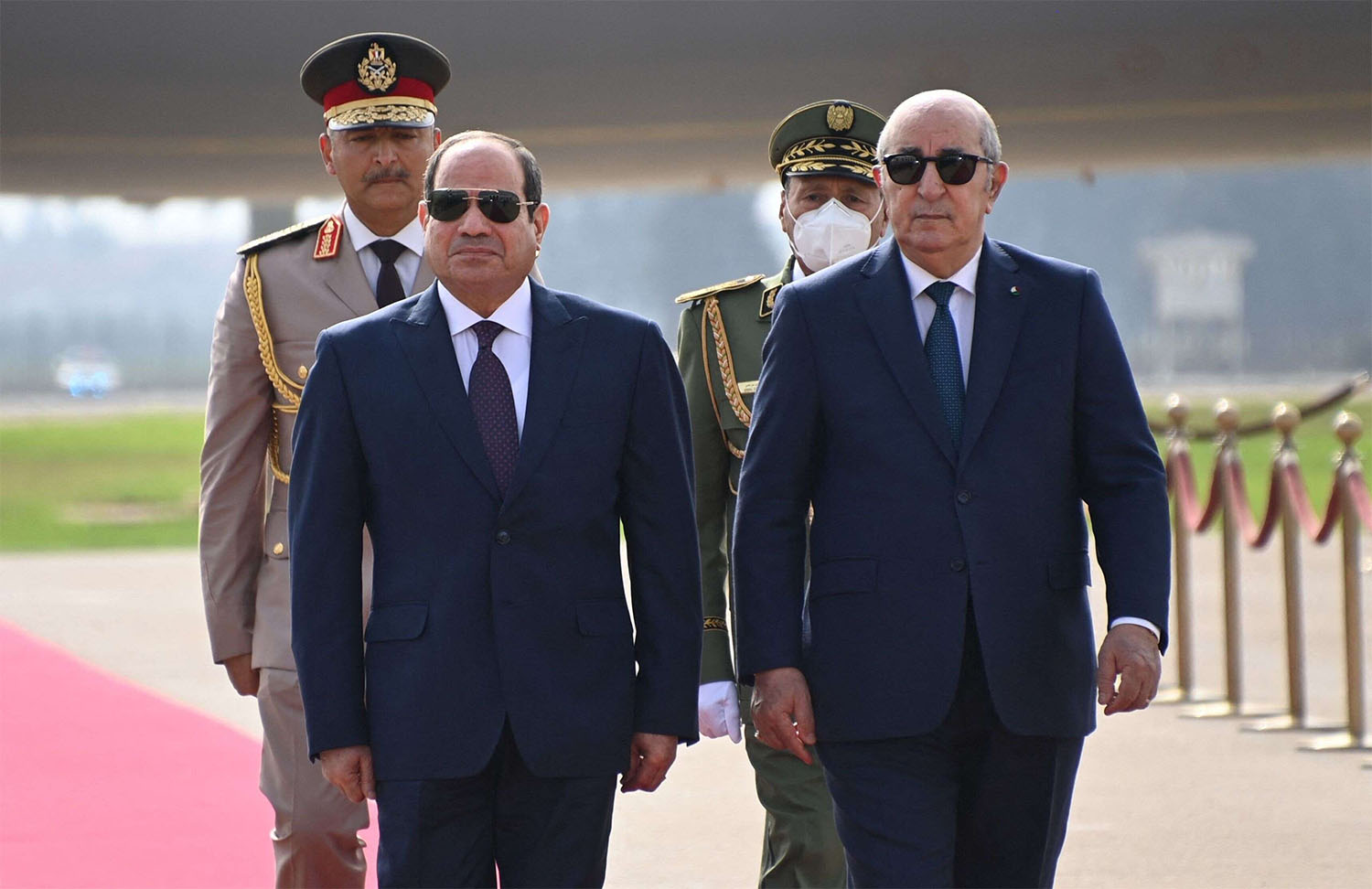An Arab Domino syndrome in Algiers and Cairo
Algerian anxiety and Egyptian fear of a re-enactment in their midst of what has happened in Syria reflect a painful reality of how pivotal countries in the Arab world are being led and their affairs managed.
Algeria as well as Egypt are facing the start of a “new season” where Islamists are nudging towards power.
Egypt is very different from Algeria. But the two countries have many points in common, the most salient of which is their reliance on the army for their security.
The regime of Bashar al-Assad has fallen with the onset of the “second season” of the uprising it faced. Anti-Assad forces learned a lot from the first episode of the movement to the extent that they reached a level of preparedness which enabled them to act quickly and effectively as they dealt the fatal blow to a wobbly regime. The fall of the Damascus regime was so quick that its closest allies were unable to take any steps to give it a helping hand. During the few days between the seizure of control by the Hayat Tahrir al-Sham fighters of the city of Aleppo, and the announcement of the hasty exit by the Syrian president and his family from Damascus, leaders in Tehran and Moscow barely managed to dispatch emissaries to the Syrian capital to find out what the regime needed.
It was clear to a veteran like Iranian Foreign Minister Abbas Araghchi that the regime was in its final days. Russians came away with a similar conclusion. The only backup that reached Syria was from a few hundred remaining Hezbollah fighters who tried to prevent the road between Damascus and the coastal cities from being cut off by the rebels. But the regime fell without the insurgents needing to tighten the noose around Damascus. The Syrian government was completely worn out. The “first season” of the uprising had nearly finished it off, and no one imagined that the beginning of the “second season” of the revolt could face new realities in Damascus.
The Algerian regime fears a repeat in its midst of the Syrian scenario. The regime of President Abdelaziz Bouteflika held out without Bouteflika himself being there. The powers that be in Algiers attempted a little nip-and-tuck to try to change some of the features of the regime’s appearance. It had become difficult to continue propping up Bouteflika since he stopped moving or even speaking. It was hence necessary to bring in a new face.
The COVID-19 pandemic helped established an optical buffer between Bouteflika and his successor, Abdelmadjid Tebboune. Fate subsequently intervened to remove Army Commander-in Chief Ahmed Gaid Salah from the scene and replace him with Said Chengriha. With the “second season” of the Algerian “Hirak” uprising, the goal of the protest movement seemed to have been achieved. It looked as if Algeria was about to enter a new era, including free elections and a new leadership.
But that was not to be the case. Algeria remained as it was, a stagnant country, unable to bring about change. The current fear of an uprising spreading from east to west is warranted. Algeria as well as Egypt, is facing the start of a “new season” where Islamists are nudging towards power.
The brief mention of Egypt does not accurately reflect all the complex factors of the new season. Egypt is very different from Algeria. But the two countries have many points in common, the most salient of which is their reliance on the army for their security.
While allies provided financial and psychological support to Cairo, Algeria benefited from the rise in global energy prices, which replenished its budget.
Egypt needed and received Emirati, Saudi and Kuwaiti money, while Qatari money worked against Cairo.
Psychological factors were essentially media-related. The regime in Algeria has held out for many reasons, the most important of which was the regional fear of the repercussions that could ensue if a large country armed to the teeth such as Egypt were to collapse. The Muslim Brotherhood launched a media and psychological campaign which may have been the most aggressive in the history of the region and the world seeking to tarnish the reputation of the Egyptian army and its allies.
The Algerians have looked at recent events through the wrong lens and obviously came to the wrong conclusions. I remember how once, as I talked to senior Moroccan political leaders about the Algerians’ misinterpretation of the Moroccan position, one of my interlocutors told me, “If the Algerians only knew how keen we are about their stability and were aware of our efforts to secure their borders, they would have probably withdrawn their army from our common border.”
Then, my interlocutor added, “Do you see the Libyan crisis? If Algeria collapsed, we would be facing a situation that is ten or twenty times far worse than Libya’s. We care about Algerian national security as much as we care about our own.”
Of course, the Algerians are unable to shed their Morocco syndrome and cannot be expected to engage in self-criticism, not even for a short while, in order to reach the right conclusions.
Among the old theories invoked once again to explain Algerian behaviour is that senior Algerian generals benefit from the security and financial laxity in the Tindouf camps. But such a theory makes even less sense today than before.
The generals may benefit from the money they pilfer from the army’s budget, but the Syrian example shows that this money is worthless. Financial flows are today monitored at a global scale. No general can smuggle money and then flee abroad. Now, you can see this or that Syrian general fleeing but without his money. He loses not only his money, but his reputation and the dignity of the country he serves as well. Algerian generals are rightfully worried because they can see what fate could befall them.
Any comparison between the Syrian and the Algerian models can only fuel anxiety. Algerian opposition activists, especially those who have never taken up arms against the regime, are asking the authorities today why they have deliberately chosen to move against the course of history by relying on security-based management, which is hardly what the Hirak movement ever advocated.
The protest movement has kept silent in order to give the Tebboune-Chenegriha duo a chance to act and not to bide its time.
The first secretary of the Algerian Socialist Forces Front (FFS), Youssef Aouchich, was fully aware, as he spoke at the Front’s conference a few days ago, that he was touching a raw nerve. Even as he avoided directly dwelling on the similarities between the Algerian and Syrian regimes, he mentioned growing popular anger not only over the social and living conditions, but also over the country’s declining regional position within its immediate environment in North Africa and the Sahel, and by extension in the Mediterranean and in its links with southern Europe, especially France and Spain.
We see again a misreading of the unfolding developments. Once more, the Algerian authorities are deluding themselves into believing the whole world is conspiring against them. Algerian newspapers report that the authorities summoned the French ambassador and warned him against the “hostile plans” of French intelligence services and their recruitment of Algerian activists (or terrorists, as one official Algerian newspaper described them) to target the country’s security and stability.
Algeria cannot understand how the world has changed nor the extent of that change. Every time, it seems, we find ourselves sliding back to square one. I am not surprised that an older Algerian general would see in young African officers seeking change in their Sahel countries some unacceptable conspiracy, nor that he would misconstrue any change in the realities of trade and international relations as part of an economic war targeting Algeria’s primary source of income, oil and gas.
Any changes in the way armed forces seek to protect their national security are misperceived as an act of aggression. In fact, any attempt to interpret the geostrategic situation from the perspective of this changing world becomes a matter of concern for Algerian diplomats who do not hesitate to find links between conflicts in the eastern Mediterranean and their country.
What happened in Damascus and Beirut, could happen here, they fear. The worst part about the Algerian way of looking at events is its rigidity, in a way that competes with how Iran and Hezbollah look at things (and perhaps even Bashar al-Assad himself if we knew where he was or were able to interview him). Tehran and its Lebanese proxy seem more accepting of the changing realities in the region and the world and more willing to learn from them than Algiers.
Perhaps in the coming days we could discuss how the Egyptians are expressing their fear of what has happened or could be happening, the way the Egyptian Minister of Defence Abdel Majid Saqr spoke about the imminent and potential dangers facing his country, or the way the authorities have moved to prevent Syrian nationals who hold residency in European countries from entering Egypt for fear of Muslim Brotherhood moles among them.
These are symptoms of the same incurable obsession which has afflicted the Algerians. Algerian anxiety and Egyptian fear of a re-enactment in their midst of what has happened in Syria reflect a painful reality of how pivotal countries in the Arab world are being led and their affairs managed. There is much that can be said about what is happening in our region and where things are heading. This time there are reasons to worry about Algeria as much as to be afraid for Egypt. The second season of the “Hirak” and the “Muslim Brotherhood’s plot” are lurking around the corner.
Haitham El Zobaidi is the Executive Editor of Al Arab Publishing House







